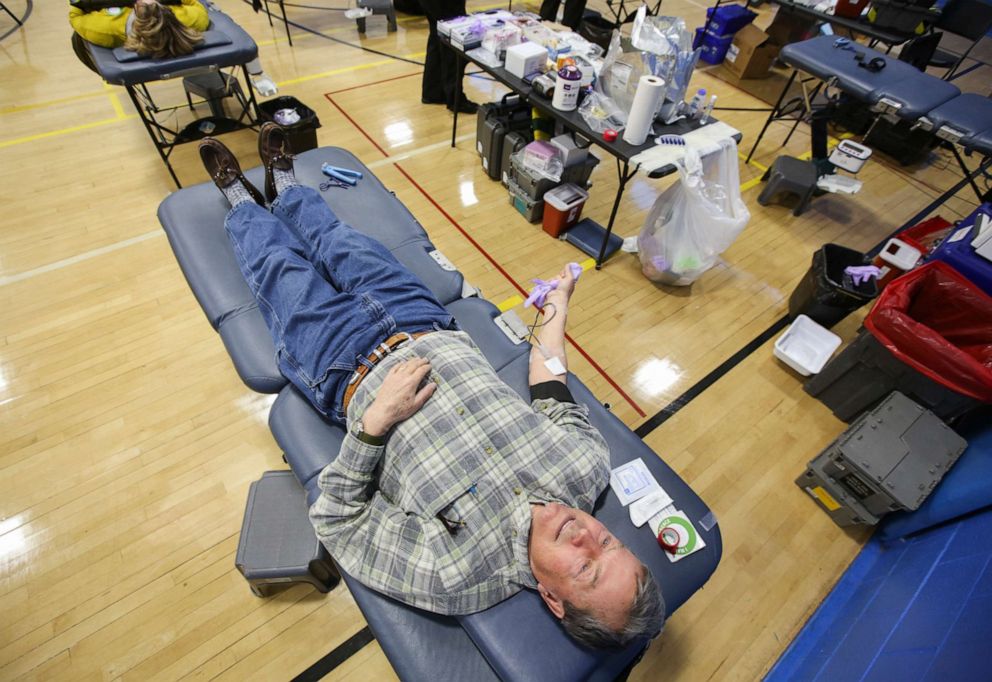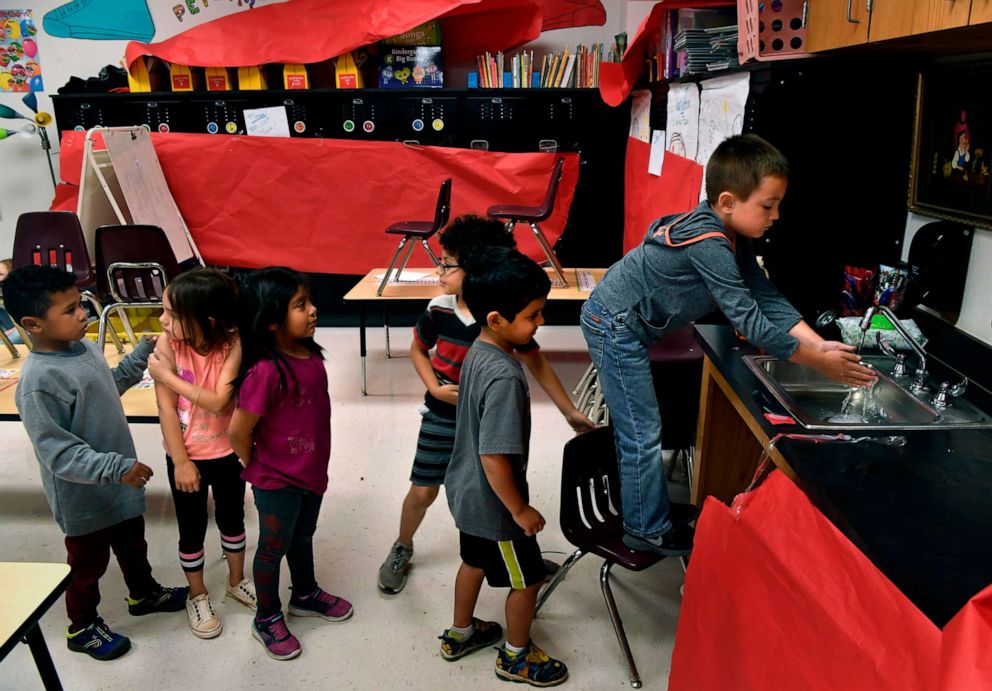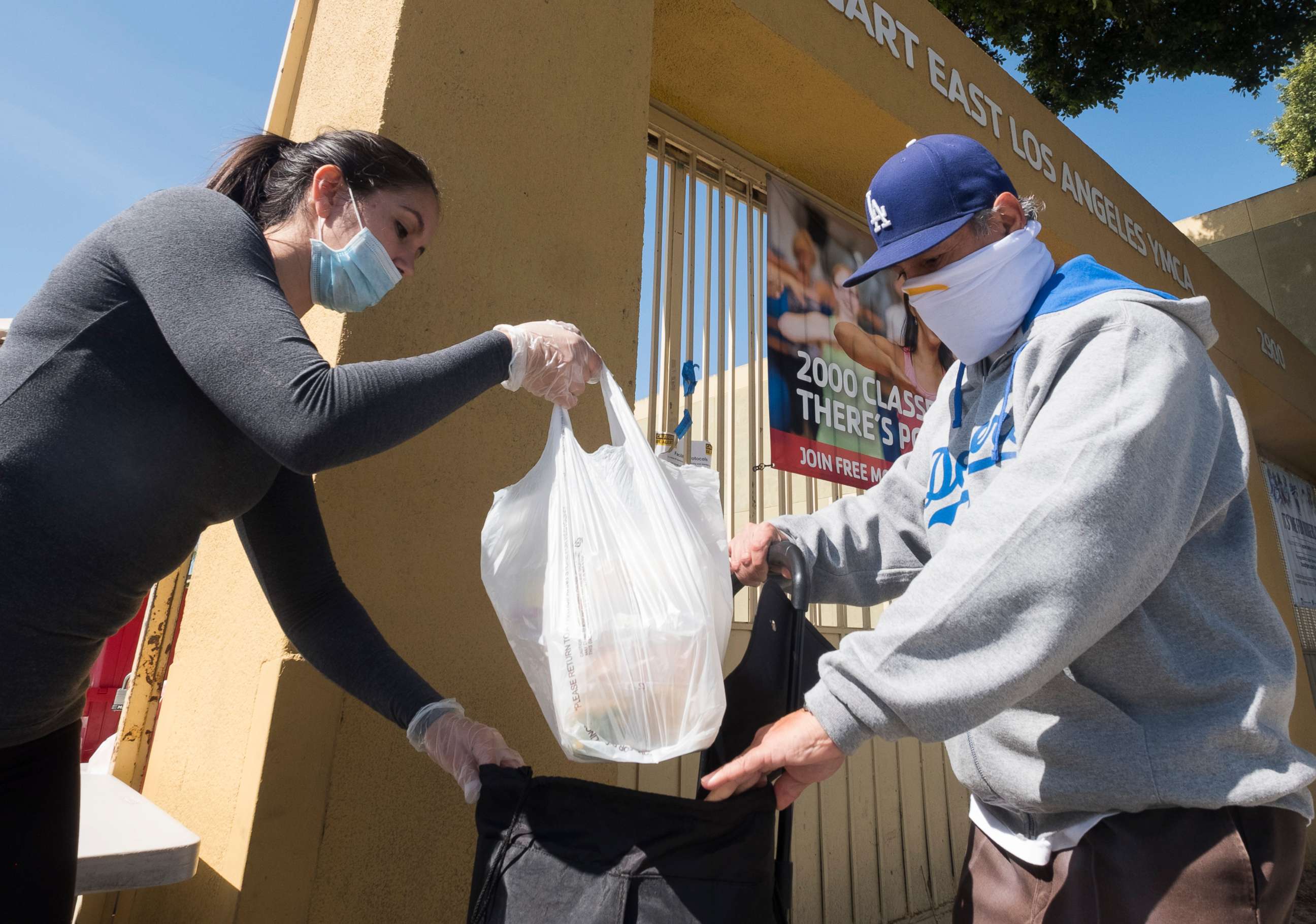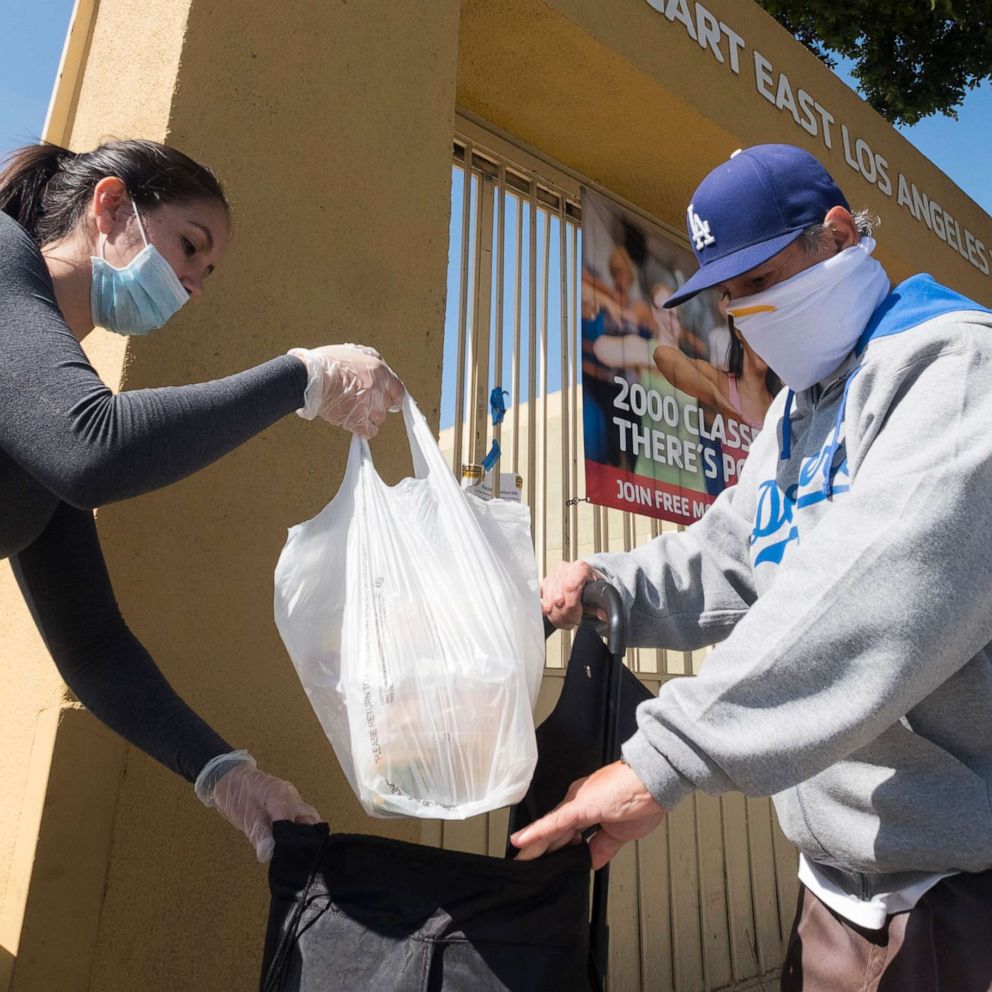Nonprofit organizations ask for stimulus money as resources dry up in coronavirus pandemic
While the novel coronavirus pandemic continues to spread across the country, nonprofit organizations continue to operate some of their most important programs.
Whether it’s child care for essential workers, blood drives or online training sessions for job applications, organizations like the YMCA and United Way continue to be in demand within their local communities, according to nonprofit leaders. These programs, however, are in grave danger of using up what funding they have, which could cost millions of jobs across the country, and result in long-term shutdowns of community centers.
"Those services we provide are going to be needed now and they are going to be needed badly once we get through this pandemic," Kevin Washington, YMCA of the USA CEO, told ABC News.
Washington and other leaders are calling for an immediate federal stimulus package directed toward nonprofit groups.
The nonprofit sector is the third largest employer in the nation with 12.5 million employees, according to a study by Johns Hopkins Center for Civil Studies. The National Council of Nonprofits estimates there are 1.4 million nonprofit organizations in the country and 80% of the sector's revenue comes from private fees for services and government grants and contracts.

Brian Gallagher, the CEO of the United Way, which has 9,500 employees and nearly 3 million volunteers in 1,100 local chapters across the U.S., said he has received reports from other leaders that their organizations are operating with little cash.
"While I don’t know the state for all nonprofits, the data we’re seeing from New York City indicates 40,000 nonprofits have zero operating reserves," he told ABC News.
Washington added that donations from major corporations and funds have also declined over the last month.
"We have had some groups tell us they would be able to help, but there is still a pit in our budgets that needs more money," he said.

Gallagher said full-time staff and volunteers are scrambling to continue their work because members still need their services. He noted that United Way helps operate 2-1-1 hotlines that provide support and connections to resources, such as health providers, and they have been getting over 75,000 calls a day.
"In the first few weeks of the crisis…the most requested question was, 'Should I get tested?' That has now shifted to economic distress related calls because so many people are out of work," he said.
Gallagher said he and other nonprofit leaders are asking for assistance from the government to keep them afloat. Washington said the recent stimulus bill only gave a small boost to nonprofits and had a major loophole that only allowed organizations with 500 employees or fewer to be eligible for Small Business Administration loans of up to $10 million.
"My hope is the federal government does something specific for nonprofits," Washington said.
Rep. Seth Moulton, D-Mass., agreed and has co-sponsored legislation that would provide billions in relief to all 501c nonprofits and charities. Moulton said he has gotten calls about nonprofits furloughing staff and was upset that the last stimulus package left out nonprofits from any financial aid.

Under the legislation, which did not have a Senate version as of Thursday, nonprofits of all sizes would be eligible for $60 billion in funds that would be made available through Small Business Administration loans.
"Part of the things in this bill is to fix an oversight that was in the previous bill," Moulton told ABC News.
The legislation also allows Americans to count donations to nonprofits and charities as tax deductions for their 2019 and 2020 tax filings, a way to encourage more people to make donations.
Washington said he hopes leaders can push forward with this legislation.
"There will be some charities that get through this, but I know there will be a lot of organizations that won’t," he said. "I do know it will have a detrimental effect on their communities."
What to know about Coronavirus:
- How it started and how to protect yourself: Coronavirus explained
- What to do if you have symptoms: Coronavirus symptoms
- Tracking the spread in the US and Worldwide: Coronavirus map




